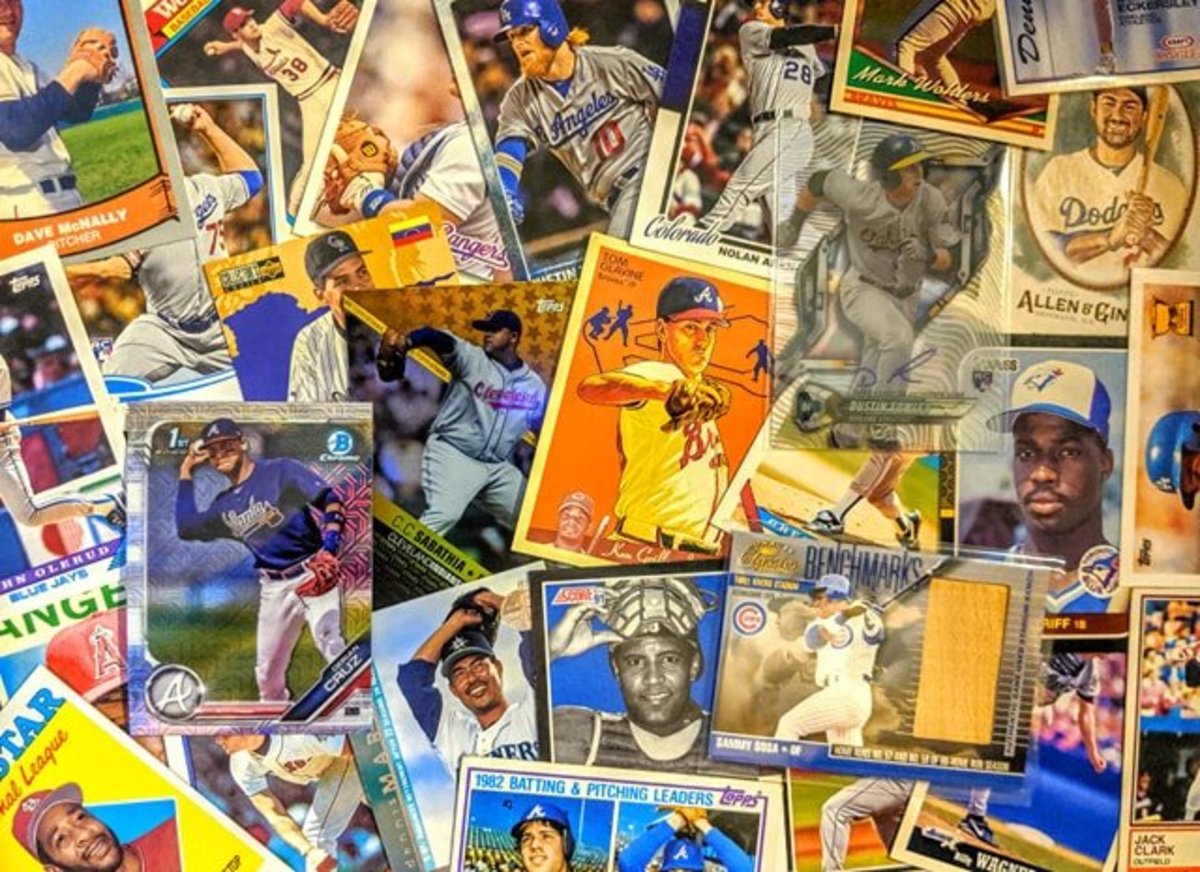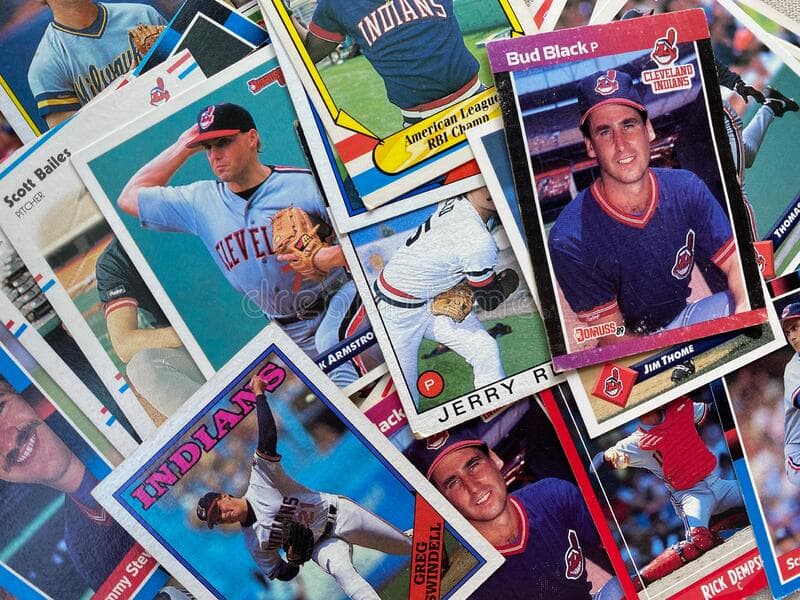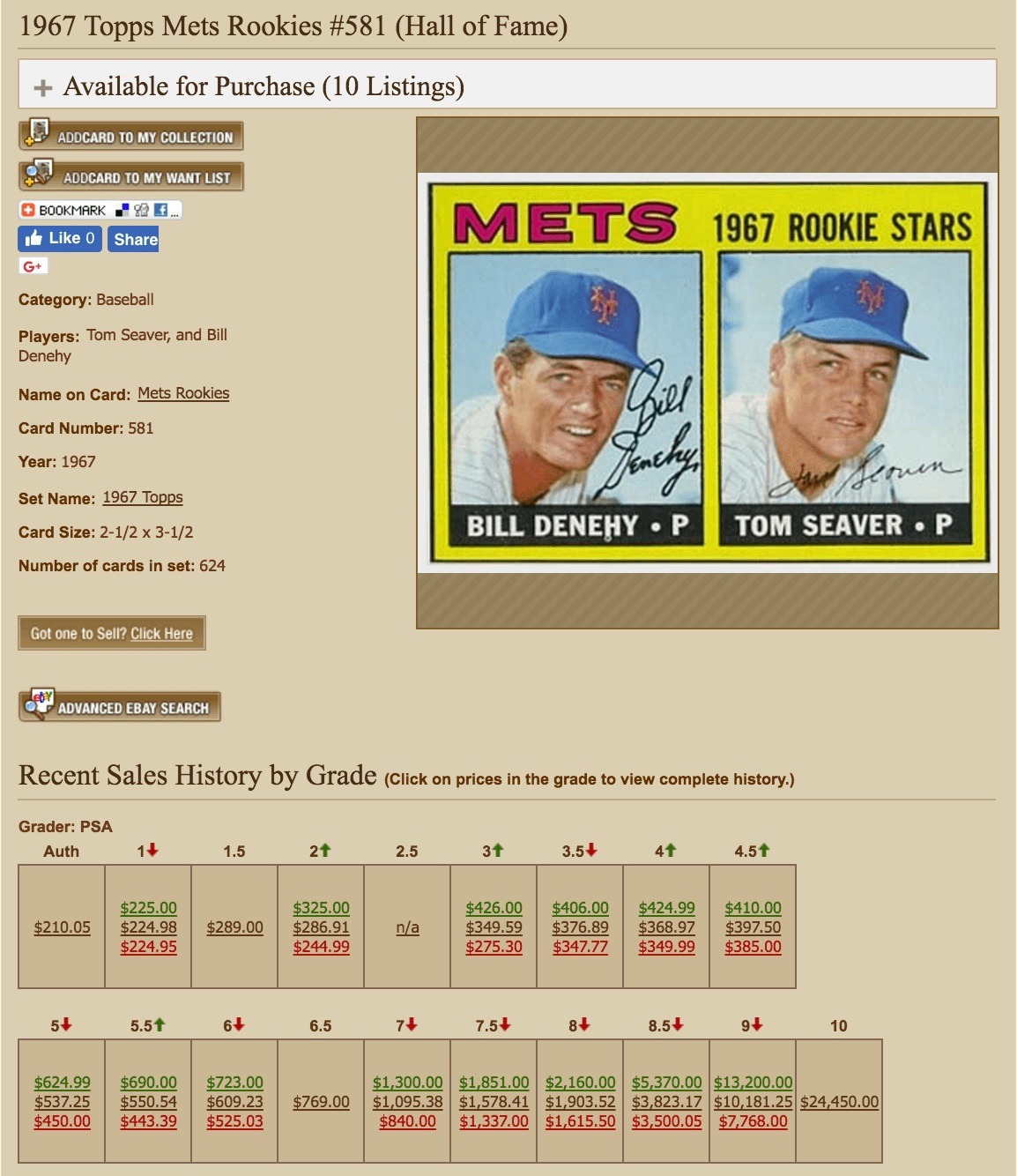Why Sell Your Baseball Cards?
For many enthusiasts, baseball cards are a treasured collection that sparks nostalgia and joy. However, as collections grow, they can become overwhelming, taking up valuable space and gathering dust. Selling baseball cards can be a great way to declutter, make some extra money, and fund new hobbies or interests. With the growing demand for vintage and rare baseball cards, now is an excellent time to consider selling your collection. Whether you’re looking to downsize, upgrade, or simply cash in on your investment, selling baseball cards can be a lucrative venture.
One of the primary reasons people sell their baseball cards is to capitalize on their value. Rare and limited-edition cards, such as those featuring iconic players or rookie seasons, can fetch high prices. Additionally, cards in good condition, with minimal wear and tear, can command a premium. By selling your baseball cards, you can tap into this demand and earn a tidy profit.
Another reason to sell your baseball cards is to fund new hobbies or interests. Perhaps you’ve lost interest in collecting baseball cards or want to explore other passions. Selling your collection can provide the necessary funds to pursue new endeavors, whether it’s starting a new hobby, taking a trip, or investing in a different type of collectible.
When considering where to sell baseball cards, it’s essential to research your options. You can sell your cards online through marketplaces like eBay or specialized card shops, or in-person at garage sales, flea markets, or local card shows. Each option has its pros and cons, and understanding the fees, commissions, and target audiences can help you make an informed decision.
Ultimately, selling your baseball cards can be a great way to declutter, make some extra money, and pursue new interests. With the right strategy and research, you can maximize your profits and find a new home for your beloved collection.
Preparing Your Collection for Sale
Before selling your baseball cards, it’s essential to prepare your collection to increase its value. This involves organizing, categorizing, and conditioning your cards to make them more attractive to potential buyers. A well-organized collection can help you identify rare and valuable cards, making it easier to determine their worth.
Start by sorting your cards into categories, such as by player, team, or year. This will help you identify duplicates and make it easier to research your cards’ authenticity and rarity. Use acid-free materials, such as top-loaders and binders, to store and protect your cards. This will help prevent damage and maintain their condition.
Researching your cards’ authenticity and rarity is crucial to determining their value. Use reputable price guides, such as Beckett Grading Services or Professional Sports Authenticator, to get an idea of your cards’ worth. You can also consult with experts, such as professional graders or appraisers, to get a more accurate assessment of your collection.
When preparing your collection for sale, consider getting your cards professionally graded and authenticated. This can increase their value and make them more attractive to potential buyers. Companies like Professional Sports Authenticator (PSA) and Beckett Grading Services (BGS) offer grading and authentication services that can help verify the authenticity and condition of your cards.
Additionally, consider creating a detailed inventory of your collection, including the card number, player name, team, and condition. This will help you keep track of your cards and make it easier to identify potential buyers. By taking the time to prepare your collection, you can increase its value and make it more attractive to potential buyers, whether you’re selling online or in-person.
When deciding where to sell baseball cards, consider the fees, commissions, and target audiences associated with each platform. Online marketplaces like eBay and COMC offer a wide reach and competitive pricing, while specialized card shops and forums provide a more targeted audience. By preparing your collection and researching your options, you can maximize your profits and find the best platform for selling your baseball cards.
Online Marketplaces for Baseball Card Enthusiasts
When it comes to selling baseball cards, online marketplaces offer a convenient and accessible platform for buyers and sellers to connect. Popular online marketplaces like eBay, COMC (Check Out My Cards), and Sportslot provide a wide reach and competitive pricing for baseball card enthusiasts.
eBay is one of the most popular online marketplaces for buying and selling baseball cards. With a vast user base and competitive pricing, eBay offers a great platform for sellers to showcase their cards. However, eBay charges a listing fee, and sellers must also pay a final value fee, which ranges from 8% to 12.5% of the sale price.
COMC (Check Out My Cards) is another popular online marketplace for baseball card enthusiasts. COMC allows sellers to list their cards for free, and buyers can purchase cards using a credit card or PayPal. COMC charges a flat commission fee of 15% on all sales.
Sportslot is a newer online marketplace that specializes in sports cards, including baseball cards. Sportslot offers a user-friendly interface and competitive pricing, making it an attractive option for sellers. Sportslot charges a listing fee, and sellers must also pay a commission fee, which ranges from 10% to 15% of the sale price.
When selling baseball cards on online marketplaces, it’s essential to provide high-quality images and detailed descriptions of the cards. This will help attract more buyers and increase the chances of selling your cards quickly. Additionally, be sure to research your cards’ authenticity and rarity to determine their value and price them competitively.
Online marketplaces offer a convenient and accessible way to sell baseball cards, but it’s essential to understand the fees, commissions, and user experiences associated with each platform. By doing your research and choosing the right platform, you can maximize your profits and find the best home for your baseball cards.
Specialized Card Shops and Forums
Selling baseball cards to specialized card shops can be a great way to get a fair price for your collection. These shops typically cater to collectors and enthusiasts, and the owners often have extensive knowledge of baseball cards. They can provide a more personalized experience and may be willing to pay a premium for rare or high-grade cards.
Some popular online forums and communities for buying and selling baseball cards include Reddit’s r/baseballcards, where collectors connect and trade cards. These platforms provide a great way to connect with other collectors and enthusiasts, and you can often find buyers who are willing to pay a premium for rare or hard-to-find cards.
Specialized card shops may also offer trade-in programs or buyback options, which can be a convenient way to sell your cards. These programs typically allow you to trade in your cards for store credit or cash, and the shop will then resell the cards to other collectors.
When selling to specialized card shops, it’s essential to research the shop’s reputation and ensure they are reputable and trustworthy. You should also be prepared to negotiate the price of your cards, as the shop may offer you a lower price than you expect.
Additionally, consider joining online forums and communities to connect with other collectors and enthusiasts. These platforms can provide valuable resources and information on buying and selling baseball cards, and you can often find buyers who are willing to pay a premium for rare or hard-to-find cards.
Some popular online marketplaces for buying and selling baseball cards also have specialized sections for rare and high-end cards. These sections can provide a great way to connect with serious collectors and enthusiasts who are willing to pay a premium for rare or high-grade cards.
Auction Houses and High-End Sales
For rare and valuable baseball cards, auction houses can provide a platform for high-end sales. Companies like Heritage Auctions and Lelands specialize in selling high-end collectibles, including baseball cards. These auction houses often have a large network of collectors and dealers, and they can help you reach a wider audience.
The process of consigning your baseball cards to an auction house typically involves submitting your cards for evaluation and appraisal. The auction house will then determine the value of your cards and set a reserve price for the auction. If your cards sell for a price above the reserve, you will receive a percentage of the sale price, minus the auction house’s commission.
Auction houses typically charge a commission fee, which can range from 10% to 20% of the sale price. They may also charge additional fees for services like grading and authentication. However, the expertise and exposure provided by auction houses can be invaluable for high-end sales.
When consigning your baseball cards to an auction house, it’s essential to research the company’s reputation and ensure they are reputable and trustworthy. You should also carefully review the terms and conditions of the consignment agreement, including the commission fees and any additional charges.
High-end sales through auction houses can be a great way to maximize the value of your rare and valuable baseball cards. However, it’s essential to be realistic about the value of your cards and to carefully consider the fees and commissions associated with auction houses.
Additionally, consider getting your cards professionally graded and authenticated before consigning them to an auction house. This can help increase the value of your cards and provide a higher level of confidence for potential buyers.
Garage Sales, Flea Markets, and Local Card Shows
Selling baseball cards in person can be a great way to connect with local collectors and dealers. Garage sales, flea markets, and local card shows provide a platform for buyers and sellers to meet and negotiate prices. When selling in person, it’s essential to be prepared and have a clear understanding of the value of your cards.
Before selling at a garage sale or flea market, make sure to research the prices of your cards using price guides like Beckett Grading Services or Professional Sports Authenticator. This will help you determine the value of your cards and set competitive prices. Additionally, consider getting your cards professionally graded and authenticated to increase their value.
When selling at a local card show, be prepared to negotiate prices with collectors and dealers. Bring a price list and be flexible with your pricing. Consider offering discounts for bulk purchases or bundling multiple cards together. Also, be prepared to answer questions about the condition, rarity, and authenticity of your cards.
Displaying your cards in an attractive and organized manner can also help attract buyers. Use top-loaders, binders, and other display materials to showcase your cards. Consider creating a display case or table to showcase your most valuable or rare cards.
Selling to local collectors and dealers can be a great way to build relationships and get feedback on your collection. Consider trading cards with other collectors or dealers to build your collection and increase its value.
When selling in person, it’s essential to be prepared for negotiations and have a clear understanding of the value of your cards. By doing your research and being prepared, you can maximize your profits and have a successful selling experience.
How to Price Your Baseball Cards for Sale
Pricing your baseball cards correctly is crucial to selling them quickly and for a good price. To determine the value of your cards, you can use price guides like Beckett Grading Services or Professional Sports Authenticator. These guides provide a comprehensive list of baseball cards, including their values and rarity.
When pricing your cards, consider the condition, rarity, and demand for each card. Cards in good condition, with minimal wear and tear, can command a higher price than those that are damaged or worn. Rare cards, such as those with low print runs or featuring popular players, can also command a higher price.
Be competitive and flexible with your pricing. Research what similar cards are selling for online and adjust your prices accordingly. Consider offering discounts for bulk purchases or bundling multiple cards together.
Keep in mind that the value of baseball cards can fluctuate over time, so it’s essential to stay up-to-date with market trends and adjust your prices accordingly. You can also consider getting your cards professionally graded and authenticated to increase their value.
When pricing your cards, also consider the fees and commissions associated with selling them. If you’re selling online, you’ll need to factor in the fees charged by the platform, as well as any shipping costs. If you’re selling in person, you’ll need to consider the costs of displaying and storing your cards.
By pricing your baseball cards correctly, you can attract more buyers and sell your cards quickly and for a good price. Remember to stay competitive, be flexible, and adjust your prices accordingly to maximize your profits.
Maximizing Your Profits and Minimizing Hassle
To maximize your profits and minimize hassle when selling your baseball card collection, consider using card grading services and shipping materials. Card grading services, such as Professional Sports Authenticator (PSA) or Beckett Grading Services (BGS), can help verify the authenticity and condition of your cards, increasing their value and appeal to potential buyers.
Shipping materials, such as top-loaders, binders, and bubble mailers, can help protect your cards during shipping and ensure they arrive in good condition. Consider using shipping materials specifically designed for baseball cards, such as acid-free paper and plastic sleeves.
Additionally, consider using online marketplaces that offer shipping labels and packaging materials, such as eBay or COMC. These platforms can help streamline the shipping process and reduce hassle.
When selling your baseball card collection, it’s essential to stay organized and keep track of your sales, expenses, and profits. Consider using a spreadsheet or accounting software to help manage your finances and stay on top of your sales.
By following these tips and using the right tools and resources, you can maximize your profits and minimize hassle when selling your baseball card collection. Remember to stay competitive, be flexible, and adjust your prices accordingly to attract more buyers and sell your cards quickly and for a good price.
Where can you sell baseball cards? The answer is, there are many options available, both online and offline. By considering your options and using the right strategies, you can turn your baseball card collection into cash and achieve your financial goals.






